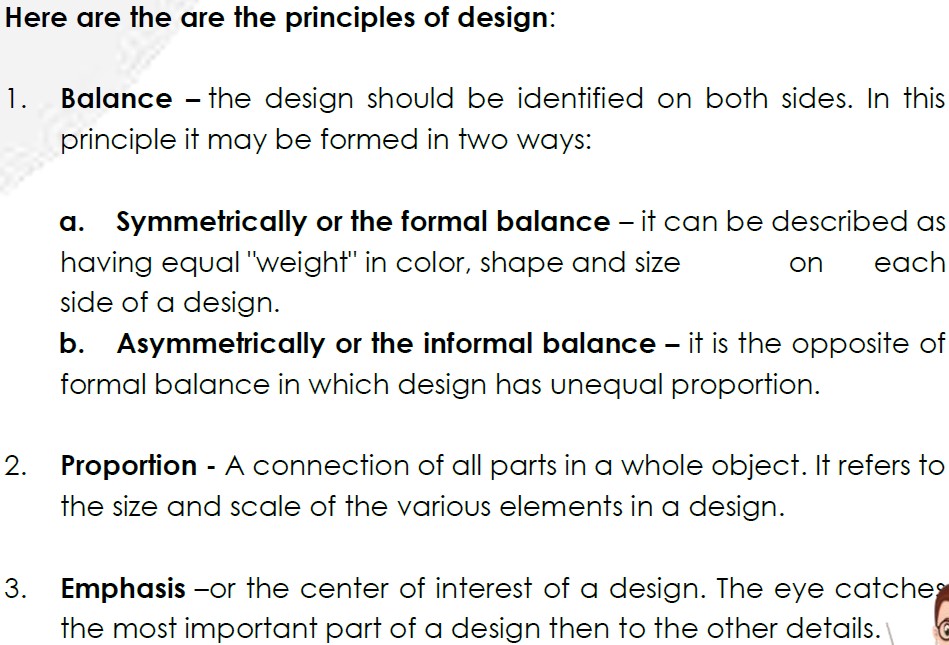Here are the principles of design: 1. Balance – the design should be identified on both sides. In this principle it may be formed in two ways: a. Symmetrically or the formal balanc... Here are the principles of design: 1. Balance – the design should be identified on both sides. In this principle it may be formed in two ways: a. Symmetrically or the formal balance, b. Asymmetrically or the informal balance. 2. Proportion - a connection of all parts in a whole object. 3. Emphasis - the center of interest of a design.

Understand the Problem
The question is presenting the principles of design, specifically focusing on balance, proportion, and emphasis. It describes how balance can be symmetrical or asymmetrical, how proportion relates to the sizing of parts within a design, and how emphasis directs attention to the most important elements.
Answer
Balance, proportion, and emphasis are key design principles.
The principles of design include balance (symmetrically and asymmetrically), proportion, and emphasis.
Answer for screen readers
The principles of design include balance (symmetrically and asymmetrically), proportion, and emphasis.
More Information
Design principles such as balance, proportion, and emphasis guide the creation of aesthetically pleasing and effective compositions.
Tips
Avoid overemphasizing one design element, as it may lead to an unbalanced or disproportionate look.
Sources
- Balance as a Principle of Design | Types & Examples - Lesson - study.com
- Design Principles: Compositional, Symmetrical And Asymmetrical - smashingmagazine.com
- Principles of Design - char.txa.cornell.edu
AI-generated content may contain errors. Please verify critical information